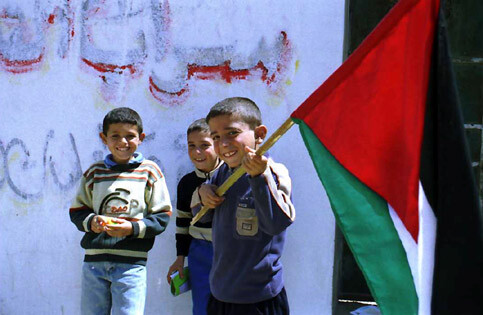Al Jazeera 12 December 2004

On January 9, 2005 Palestinians living in the occupied territories will elect a president of the Palestinian Authority in the second elections in nearly eight years. (Helga Tawil)
Palestinian Liberation Organisation chairman Mahmud Abbas has appealed to the UN to help facilitate the Palestinian presidential election, during talks in Jordan with the UN Middle East envoy. Abbas and interim prime minister, Ahmad Quraya, asked Terje Roed-Larsen to support the Palestinian elections.
They also asked that he pressure Israel to ensure voters can cast their ballots freely, Palestinian representative in Amman, Ata Allah Khairy, said.
He said the Palestinian Authority (PA) had already notified the quartet, which includes representatives from the US, UN, EU and Russia, of the arrest by the Israeli occupation army of several nominees in the southern West Bank town of Dahiriya, as well as the harassment and brief detention of two presidential candidates in Ram Allah last week.
The call came shortly after another high-ranking PA official accused Israel of jeopardising and seriously undermining Palestinian local and municipal elections due to take place in several localities in the West Bank later this month.
Jamal Shubaki, minister of local governance, charged that Israel was arresting candidates, intimidating others and threatening potential candidates with prolonged prison terms if they decided to contest the elections.
“If this flagrant interference with the elections continues, then we might very well decide to cancel or postpone the elections,” Shubaki told Aljazeera.net on Sunday. “How can a true electoral process take place in an atmosphere of intimidation by the Israeli occupation forces?”
Nominees arrested
The worst interference with the Palestinian elections so far took place in Dahiriya shortly before dawn on Friday, when a large number of troops backed by armoured personnel carriers raided the homes of four Islamic-oriented nominees for the town’s local council.
The detainees included Misbah Ahmad Zaidiya, head of the Islamic Bloc for Change, and three other members of the list, including Muhyi Battat, Ali Tall, and Ghazi Hasan Qaisiya. A fifth person, the son of one of the Islamic Bloc’s candidates, was also arrested, reportedly for running his father’s election campaign.
All four are current or retired school teachers and do not have a security history, which suggests the arrests were not motivated by security considerations.
Democracy?
“America and the world are lecturing us day and night on democracy, but when we seek to practise it, the Israeli army comes to arrest the candidates and raid their homes in the quiet hours before dawn,” Hani Abu Sharq, spokesman for the Islamic bloc, said.
“I think America is hypocritical about democracy in the Muslim world. If it wasn’t so, it would order Israel to withdraw its occupation forces from our towns and villages to enable us to have authentic elections. Obviously military occupation and democracy can’t go hand in hand.”
An Israeli army spokesman insisted that the four nominees were terrorists who were arrested for their involvement in terror. He described them as “fugitives and wanted persons”.
However, when told that the four had never been arrested and were teachers and civil servants who could have been arrested easily prior to the election campaign, the army spokesman responded, “This is what I have. I don’t have any further information.”
Freedom of movement
Last week, Israeli soldiers manning a roadblock between Ram Allah and Jerusalem harassed and detained a contender for the presidential election planned for 9 January 2005.
Similarly, Israeli occupation troops have been denying freedom of movement for all presidential candidates except for Fatah’s candidate Mahmud Abbas, also known as Abu Mazin.
In another boost to Abbas, Israel’s cabinet agreed on Sunday to free dozens of Palestinian prisoners in a move said to show goodwill before elections to replace Yasir Arafat, according to officials.
Israeli concessions before the vote are seen as boosting the chances of Abbas, a US and Israeli favourite, amid hopes that Arafat’s death could revive chances for a Middle East peace settlement.
The freeing of Palestinian prisoners had also been expected as a gesture to Egyptian President Husni Mubarak, who released convicted Israeli spy Azzam Azzam last week. The cabinet did not say when the Palestinian prisoners would be freed or who would be on the list. Palestinians are calling for the release of all 6000 detainees many of them held without trial by Israel, during a four-year-old uprising.
Khalid Amayreh is a journalist based in the occupied West Bank. This article was originally published by aljazeera.net and reprinted on EI with permission.
Related Links





